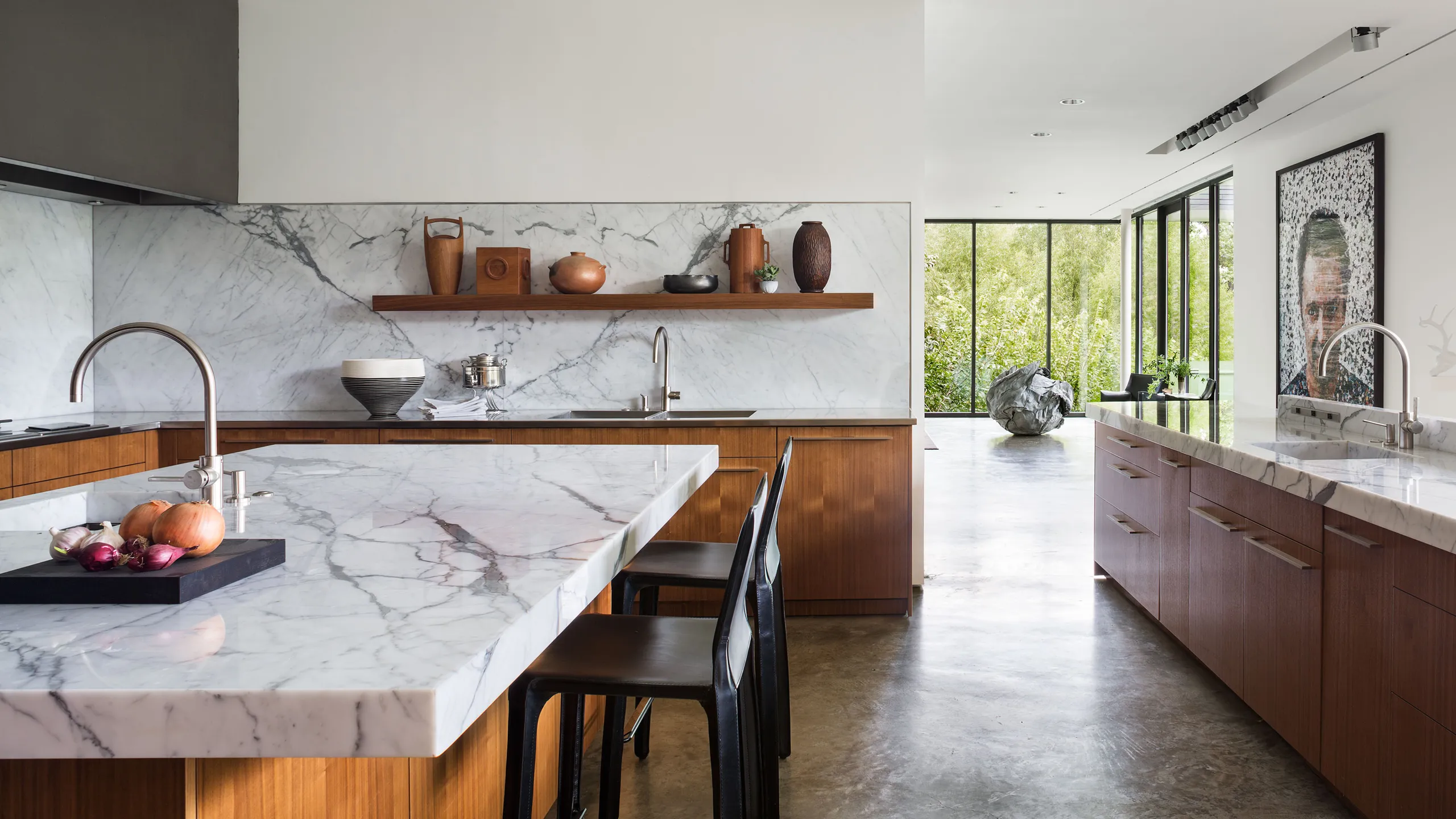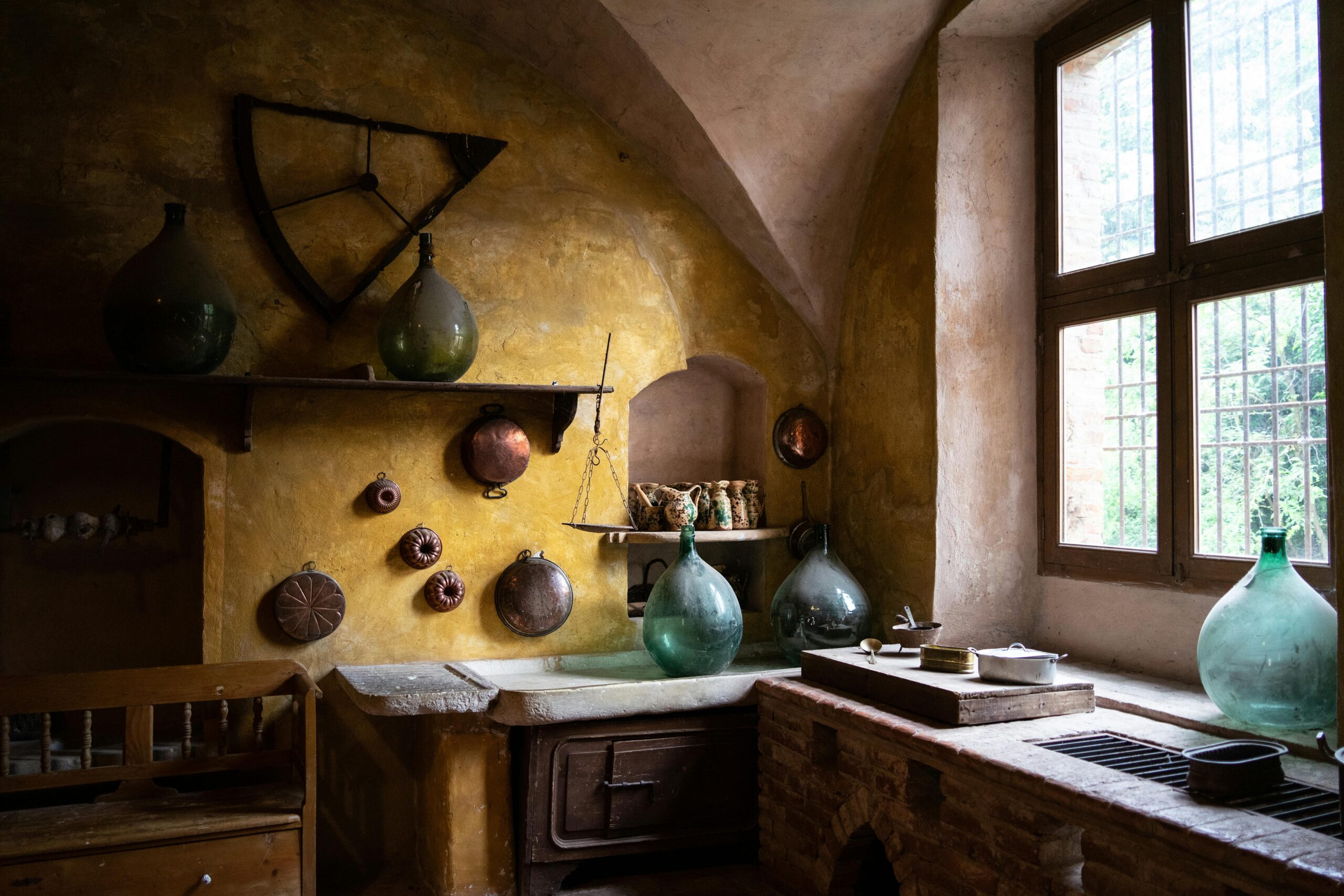Marble countertops are renowned for their timeless beauty and elegance. They not only enhance the aesthetics of your kitchen or bathroom but also add a touch of luxury. If you’re considering marble countertops, you’ve come to the right place.
This guide is designed to walk you through the process of choosing the perfect marble countertops near you, ensuring that you make an informed decision that aligns with your style, needs, and budget.
Here is the guide
Identify Your Budget
Establishing a budget is essential before diving into marble countertops. Marble comes in various grades and price ranges, so knowing your spending limits will help narrow down your options. Keep in mind that while marble is an investment, it can significantly increase the value and appeal of your home.
Marble is also easy to maintain and can last for decades. Regular cleaning and polishing are essential for maintaining its luster and shine.
Select the Right Marble Type
Marble is available in a variety of types and colors. Each type has its unique patterns and characteristics. The most common types include Carrara, Calacatta, Statuario, and Emperador. Research the options available near you, and choose the one that best suits your style and preferences.
To ensure you select the perfect marble for your home, take the time to research the different options and consult with a professional.
Consider Veining and Patterns
Marble is known for its veining, which adds to its charm. Some people prefer subtle veining, while others opt for more dramatic patterns. Visit local showrooms to see different marble slabs in person to get a sense of the veining and patterns you prefer. Ask for samples to take home and compare.
Make sure the marble you select is suitable for the intended use. Ask for recommendations from past customers to ensure you’re getting a good product.
Thickness Matters
Marble countertops come in varying thicknesses, typically 2cm or 3cm. The choice depends on your aesthetic preference and the level of durability you desire.
Thicker slabs offer more durability in a busy kitchen and are more resistant to wear and tear. Make sure to consider the thickness when shopping for marble countertops. Thicker slabs are also more expensive than thinner ones.
Choose a Reputable Supplier
Selecting a reliable supplier near you is crucial. Select marble slab suppliers with a good reputation, positive customer reviews, and a wide selection. They should also offer installation services, making the entire process more convenient.
Go for a supplier that offers competitive prices and a wide variety of products. Ask for references and do your research. Ensure the supplier is licensed and insured.
Assess Maintenance Needs
It is important to maintain marble properly since it is a natural stone. It’s prone to staining and etching, so you’ll need to be vigilant with spills and use appropriate sealants.
Consider whether you’re willing to invest time in maintenance or if you’d prefer a lower-maintenance countertop material.
Ask About Installation
Installation is a critical part of the process. Ensure that your supplier offers professional installation services or can recommend experienced installers near you. Proper installation ensures that your marble countertops look and perform their best.
Ask about the cost of installation, including materials and labor. Make sure the installers have experience with marble countertops. Ask about the warranty on their work.
Plan for Seams and Edges
Discuss seam placement and edge profiles with your supplier. Seams are necessary when installing marble countertops, and their location can affect the overall look. Additionally, choose edge profiles that match your style and comfort preferences.
Make sure to discuss any edge treatments with the supplier as well, such as beveling, polishing, or edging. Ask about any additional costs that may be associated with the edge treatments.
Consider Future Resale Value
Marble countertops can significantly increase the resale value of your home. If you plan to sell in the future, choose a classic and timeless marble type and maintain it well to preserve its value.
Consider choosing a marble type that is popular in your area. Research the current trends and make sure to choose a marble countertop that will remain in style for years to come.
Seek Expert Advice
Don’t hesitate to seek advice from experts, including interior designers, architects, and your chosen supplier. As a result of their experience and expertise, they can provide valuable insights and recommendations.
They can also advise you about the most suitable marble type for your project and how to best care for it. Ask for referrals and read reviews online to find the right supplier.
Choosing the right marble countertops near you involves careful consideration of your budget, marble type, thickness, maintenance needs, and the reputation of your supplier.
The Kitchen Design & Beyond company can exceed all your expectations. With their guidance, you can enjoy the timeless beauty and luxury of marble in your home for years to come.
Wrap Up!
With Kitchen Design & Beyond, you can expect high-quality countertops. Their countertops are crafted with precision and care, ensuring the perfect fit and finish. They are also made from the finest materials, making them extremely durable and long-lasting.

Kitchen Design & Beyond also delivers a range of customization options, allowing you to create a countertop design that is uniquely yours. They are committed to providing excellent customer service and are always willing to answer any questions you may have.
FAQs
What Makes Marble a Suitable Choice for Countertops?
Marble’s natural beauty, unique veining, and luxurious appearance make it an appealing choice for countertops. Its durability, resistance to heat, and timeless elegance add significant value to kitchen or bathroom spaces.
Marble is also relatively easy to maintain and is a great choice for those looking to add a touch of elegance and sophistication to their home.
What Are the Considerations Before Choosing Marble Countertops?
It’s essential to assess the level of maintenance required. Marble is prone to etching from acidic substances and requires periodic sealing. Understanding these upkeep needs is crucial for long-term satisfaction. Additionally, it’s important to be aware of the costs associated with marble countertops.
Marble is an expensive material, and the cost of installation can add up quickly. It’s important to budget accordingly to ensure that the desired look is achieved without breaking the bank.
How Do I Select the Right Marble for My Countertops?
Consider factors like color variation, veining patterns, and finish options. Visit a showroom or view samples to visualize how different marbles complement your space’s aesthetic and lighting conditions. Ask the salesperson for recommendations and information about care and maintenance.
Compare prices and read reviews to get the best deal. Ask for a sample to take home and evaluate. Make sure the marble you choose is of the highest quality and is within your budget. Check the warranty to ensure satisfaction.
Are All Marble Types Suitable for Countertops?
Not all marbles are created equal. Some variations, like Carrara or Calacatta, offer better durability and stain resistance, making them more suitable for high-traffic countertop areas.
Other types of marble, like travertine, may be more suitable for bathrooms or other areas where there is less traffic. Make sure to do your research before purchasing marble for any project.
What Maintenance Practices Are Necessary for Marble Countertops?
Regularly clean spills promptly with a mild soap and water solution to prevent staining. Periodic sealing is vital to protect the surface and maintain its luster.
Avoid harsh cleaning agents or acidic substances that could damage the marble. Regularly check to see if the sealant needs to be reapplied. Use a soft cloth to wipe down the countertop after every use. Avoid using abrasive cleaners or pads.


